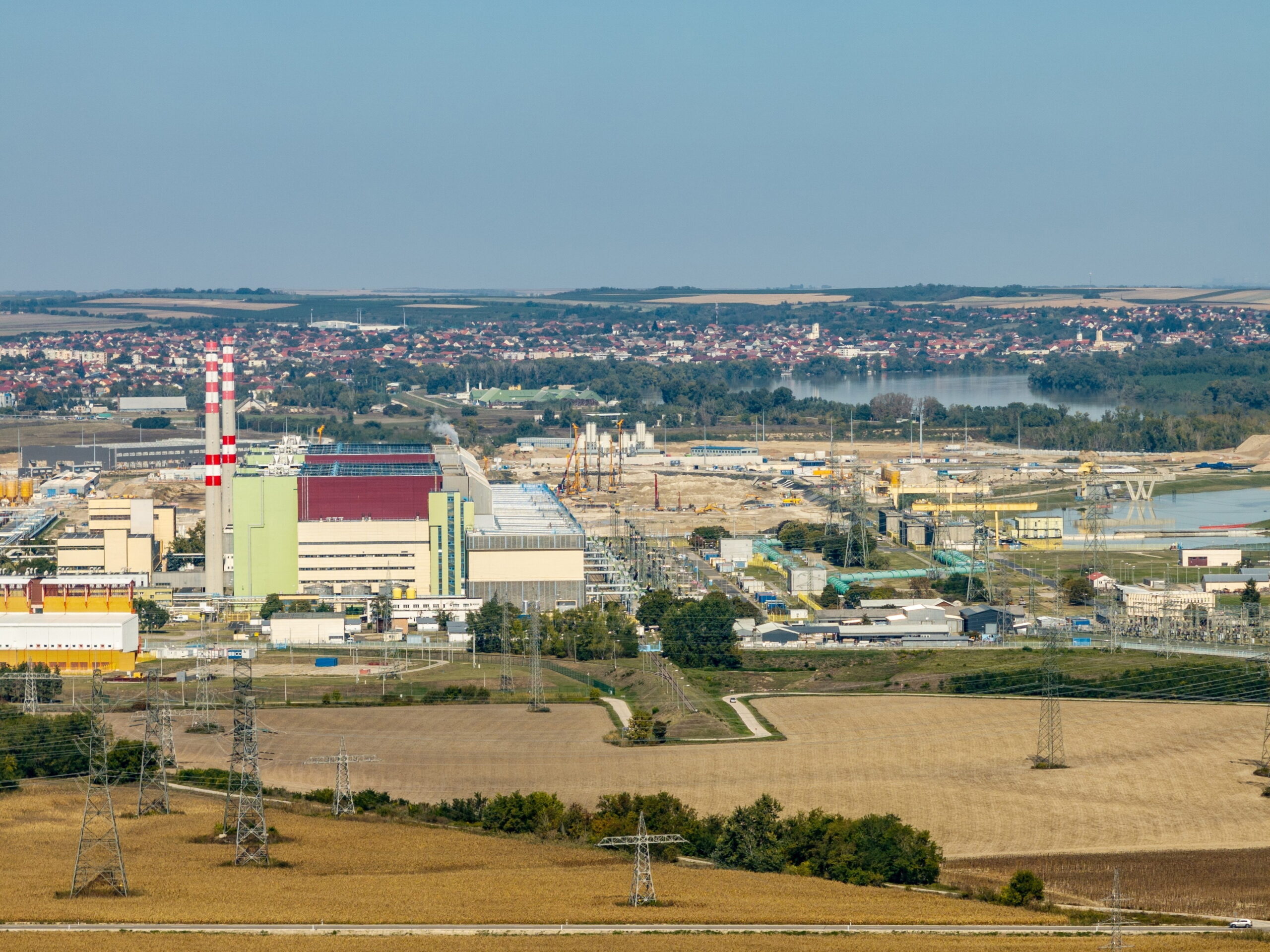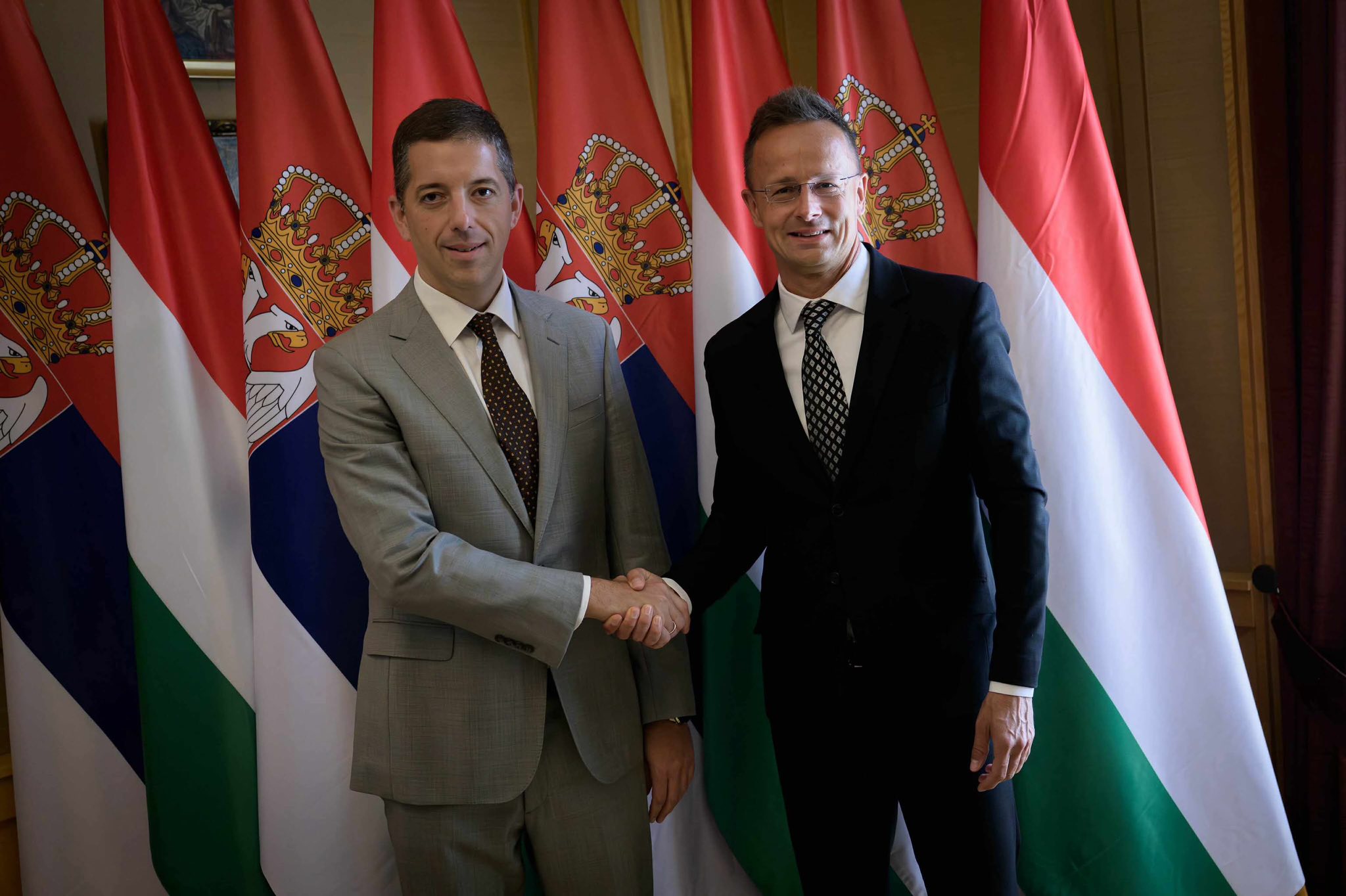
Prior to Donald Trump's presidency, the United States had made a number of politically motivated decisions, placing Hungary in a difficult position.Continue reading

In this age of danger, the importance of Hungarian-Serbian relations has grown even more, therefore national interests dictate that the sovereign governments of the two countries should work together even more closely, said Péter Szijjártó, Minister of Foreign Affairs.
The Minister made the announcement at a joint press conference on Monday with his Serbian counterpart, Marko Duric, that Brussels is no longer shying away from using increasingly harsh measures in the region, as it is clear that attempts are being made from abroad to bring about regime change in Central European countries with sovereigntist governments.
In Hungary and Serbia, governments that prioritize national sovereignty and national interests are in power, and they are facing actions that are clearly orchestrated from abroad and financed by foreign powers with the aim of bringing about a change of government. In this situation, the importance of cooperation between Hungary and Serbia is growing,”
he said.
“Brussels is also preparing to push through the Zelenskyy plan, which would seriously jeopardize Hungary and Serbia’s secure and inexpensive energy supply,” he continued.
This justifies Hungary and Serbia strengthening their cooperation in the energy sector even further. Neither Serbia nor Hungary is willing to give up the opportunity to obtain cheap Russian natural gas and cheap Russian crude oil,”
he added.
He then pointed out that more than 21 million cubic meters of natural gas arrives in Hungary every day via the TurkStream pipeline running through Serbia, while the neighboring country has begun storing approximately one million cubic meters of natural gas per day in Hungarian facilities in preparation for the winter heating season.
Péter Szijjártó said that he and his counterpart had reviewed progress on the construction of the new crude oil pipeline, which will have an annual capacity of five million tons and will greatly contribute to the region’s security of supply.
He also reiterated his strong opposition to the Zelenskyy plan, which he said was Brussels’ way of supporting Ukraine while destroying the security of Central Europe’s energy supply and multiplying utility costs in the region.
This is scandalous and unacceptable, and we will fight to the end against the Zelenskyy plan in Brussels,”
he said.
He also warned of “another dangerous push from Brussels” to fast-track Ukraine’s accession to the European Union.
“We firmly reject this, as the Hungarian people have clearly said no to all of this in the Voks 2025 referendum (…) And no matter how much pressure is exerted, no matter how much the 26 in Brussels try to squeeze us, we will stand by the decision of the Hungarian people and thus by the national interest,” the Minister emphasized.
The MFA of Ukraine said yesterday that the Hungarian people have no right to decide whether they support Ukraine’s accession to the EU. Well, the MFA of Ukraine is wrong.
Dear Ukrainian colleagues, it’s not you, not @ZelenskyyUa, and not the Ukrainian government who decides on…
— Péter Szijjártó (@FM_Szijjarto) June 26, 2025
He then underscored that Ukraine’s rapid accession would pose serious threats and risks not only to Hungary’s security and economy, but to those of Europe as a whole. In contrast, he noted, the accession of the Western Balkan states would be of great benefit, giving the community new momentum, freshness, and energy.
I do not think there is a single sane person on Earth who would think that Ukraine is in a better state than Serbia. Just as there is no sane person who would think that countries in a worse state should be admitted first, and only then those in a better state,”
he said.
In this context, he recalled that Serbia had been applying for membership for sixteen years and that the European Commission had been continuously recommending the opening of new chapters of negotiations for four years, but the Member States had not agreed to this.
“We do not agree to start negotiations with Ukraine, thus we are being disparaged with all kinds of accusations. Interestingly, the Member States that are blocking negotiations with Serbia are not facing the same accusations. This is a clear manifestation of double standards,” he emphasized.
Via MTI; Featured photo: Facebook/ Péter Szijjártó